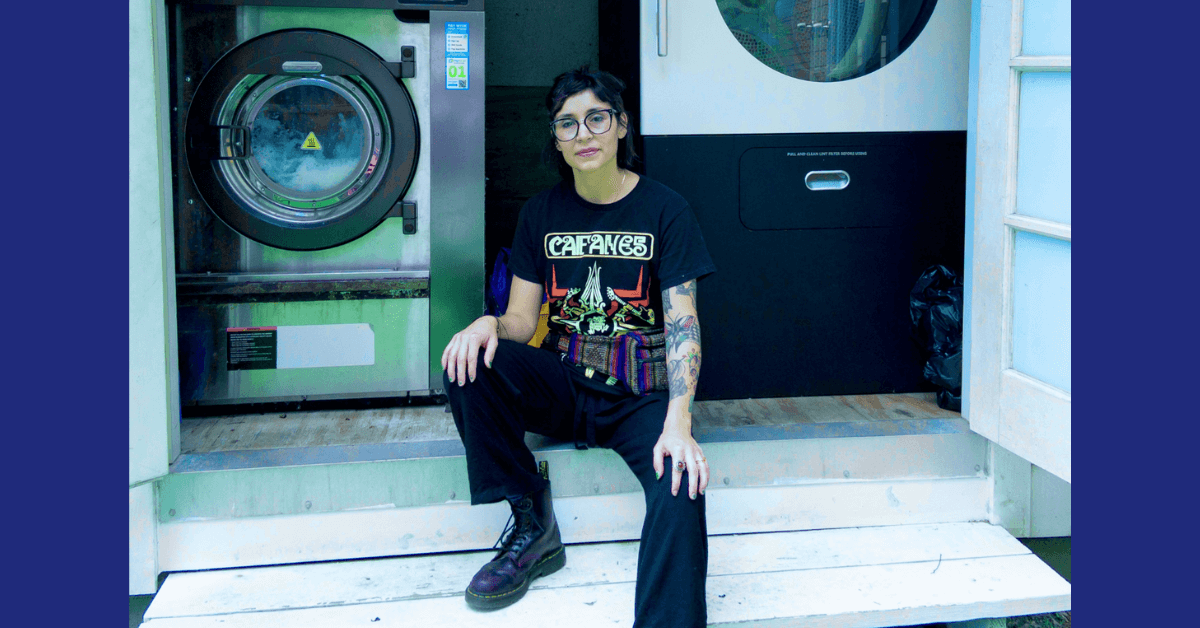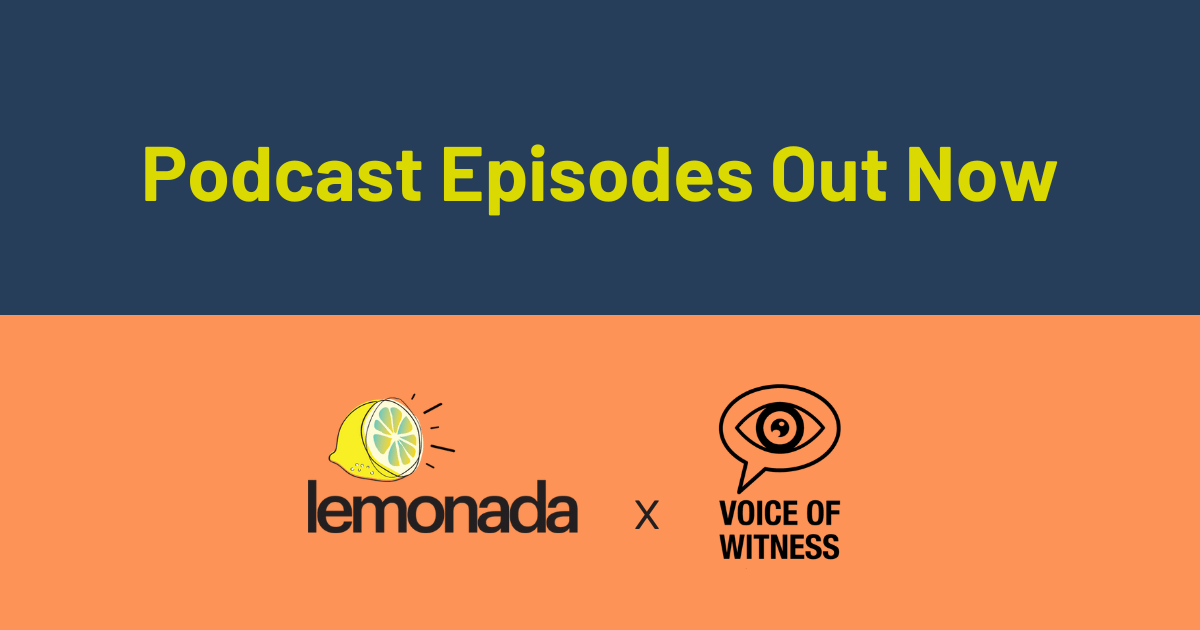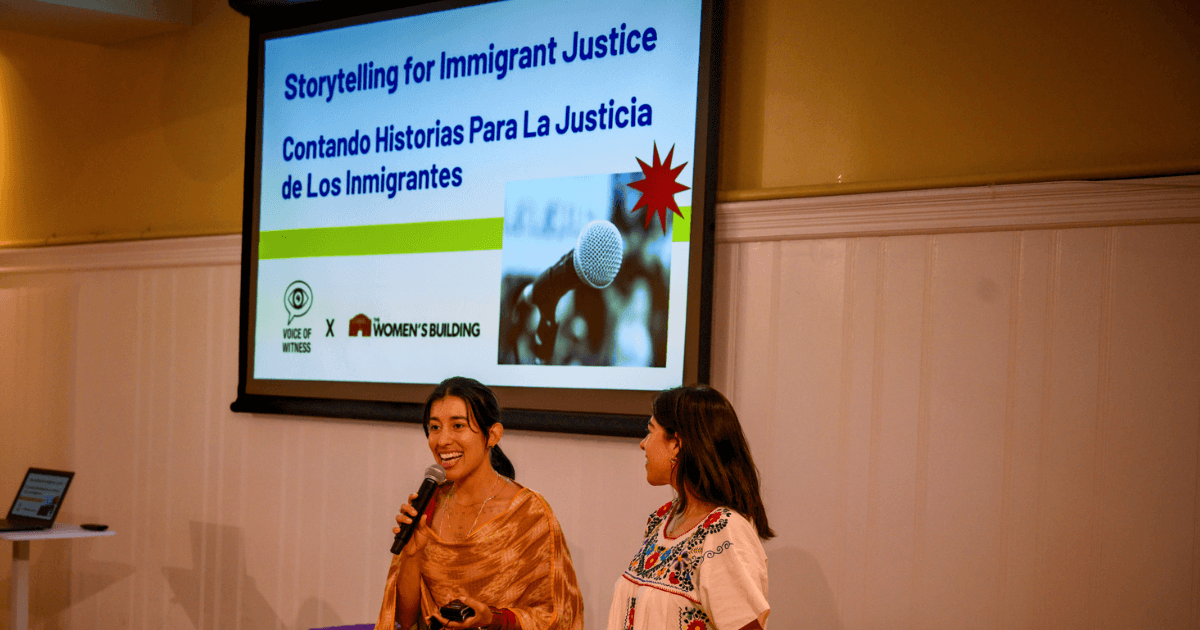We’re so excited about our first San Francisco-based VOW oral history project, Proyecto Santuario, a participatory, community-based project that explores the history of San Francisco as a “sanctuary city” through the voices of Central American immigrants and refugees.
Proyecto Santuario is currently incubating through the VOW Story Lab, which provides oral history training, editorial guidance, and project funding to human rights storytellers in need of institutional support. The project is a collaboration between Voice of Witness and Acción Latina. Learn how you can support the project here!
We hope you enjoy the interview below with VOW co-founders Dave Eggers and Mimi Lok and our project lead Diana Montaño. 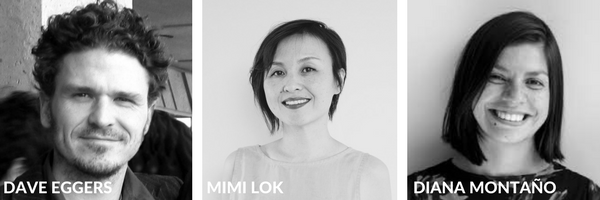 About our project lead: Diana Montaño has a Masters in Journalism from the UC Berkeley Graduate School of Journalism. She has worked in radio, print, and online outlets in both English and Spanish, and her reporting on immigration and Latino issues has won several Society of Professional Journalists awards. A longtime community media educator and former union organizer, she brings pedagogical expertise in curriculum development and workshop facilitation. She is also an immigrant born in Mexico City and raised in New York. Q: Let’s start off with a bit of context. Can you explain what a sanctuary city is and why they are important?
About our project lead: Diana Montaño has a Masters in Journalism from the UC Berkeley Graduate School of Journalism. She has worked in radio, print, and online outlets in both English and Spanish, and her reporting on immigration and Latino issues has won several Society of Professional Journalists awards. A longtime community media educator and former union organizer, she brings pedagogical expertise in curriculum development and workshop facilitation. She is also an immigrant born in Mexico City and raised in New York. Q: Let’s start off with a bit of context. Can you explain what a sanctuary city is and why they are important?
A: It’s a city whose local law enforcement does not cooperate with federal agencies in immigration enforcement, particularly in passing over immigration-related information of the majority of those who come into contact with law enforcement-be it of convicts, witnesses, or victims (although they do still pass over information of those convicted of an “aggravated felony” that is grounds for automatic deportation). The original intent of sanctuary cities was to protect Central American refugees from being deported back to civil wars in the 1980s, yet the contemporary argument for why they are important is that they guarantee undocumented immigrants, their relatives, and their communities that they will not face immigration consequences if they go to or talk with the police. It’s seen as a public safety issue because if immigrants are afraid to interact with the police, it makes it hard to find witnesses to crimes or even to encourage immigrant victims or their families to report crimes.
Q: What’s unique about San Francisco as a sanctuary city?
A: SF was the first city in the country to establish sanctuary status in 1989, to keep Central Americans from being deported back to civil wars. It’s a city whose history that says a lot about the original, humanitarian purpose of “sanctuary” that is often forgotten. It is also a city that is currently taking the lead in fighting to protect sanctuary status amidst brutal attacks from the Trump administration.
Q: What are the essential questions you hope to address with your project?
A: We hope to address the question of why sanctuary cities are important, but told through the lens of a history and a people that have been erased from the current public narrative. For these original “sanctuary refugees” we want to know: What is sanctuary to you? What has it meant to grow up in/have lived/have escaped to a sanctuary city?Q: Yours is the first VOW project with a specific focus on the city of San Francisco. How are you and the VOW team leveraging this locality to maximize the reach and impact of your project?
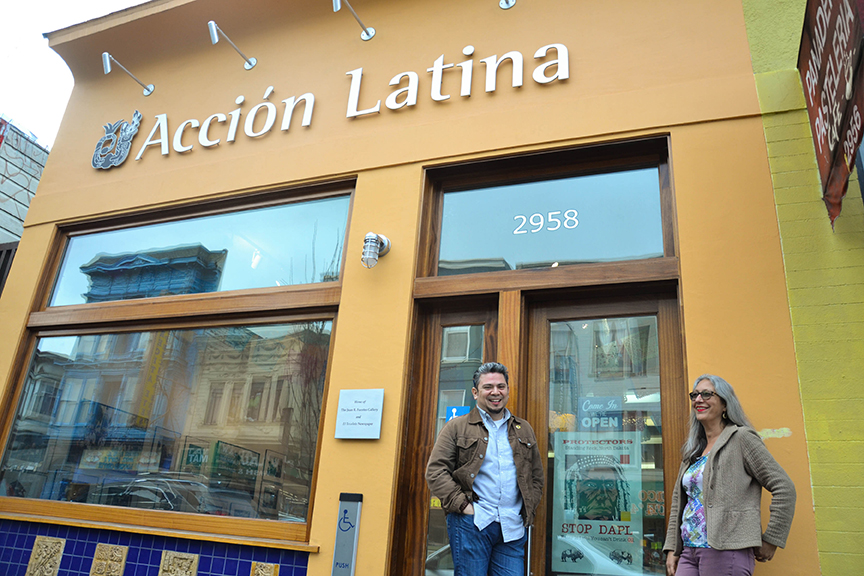
A: We hope that by partnering with a well-established local organization (Acción Latina) and its bilingual community newspaper (El Tecolote), we are able to build on the trust that already exists and the connections with community members who are willing to tell their stories, support the project, or ideally participate as community oral historians in the future. We are focusing on one specific neighborhood-The Mission- to explore the many layers of one particular immigrant experience in a diverse and polemical city. The Mission is where many Central Americans landed in the 70s and 80s fleeing war, and the neighborhood was significantly transformed by their presence.
Q: How are you involving the local community in this project?
A: Staff from Accion and El Tecolote are collaborating as project leads so that the project moves in accordance with the capacities of their organization, and with the needs of the community, and so that the project remains relevant to the Mission community. We’ll be receiving volunteer support from Tecolote newspaper staff. As a long-term project, we want to be able to train a handful of community members to conduct interviews themselves through a grassroots storytelling process.
Q: How do you see your project playing a role in the national conversation about sanctuary cities?
A: I hope that it is able to provide a historical context to a political debate that exists in an ahistorical vacuum. The federal government’s narrative of sanctuary cities being cesspools of criminals, rapists, gangsters, and other “bad hombres” is inaccurate at best, and dehumanizing at worst. By capturing the history of SF as a sanctuary city, and then reasserting a community-generated narrative of what sanctuary means to impacted immigrants, we want to be able to contribute erased historical context and human voices to the conversation.Voice of Witness relies on support from our community to bring these oral history projects to life.
With a gift to the VOW Story Fund, your support will:
- Allow Diana to travel for interviews and build face-to-face trust with narrators
- Provide oral history training to community members so they can participate in the storytelling process
- Bring these crucial stories to classrooms, bookstores, and communities across the country
DONATE

